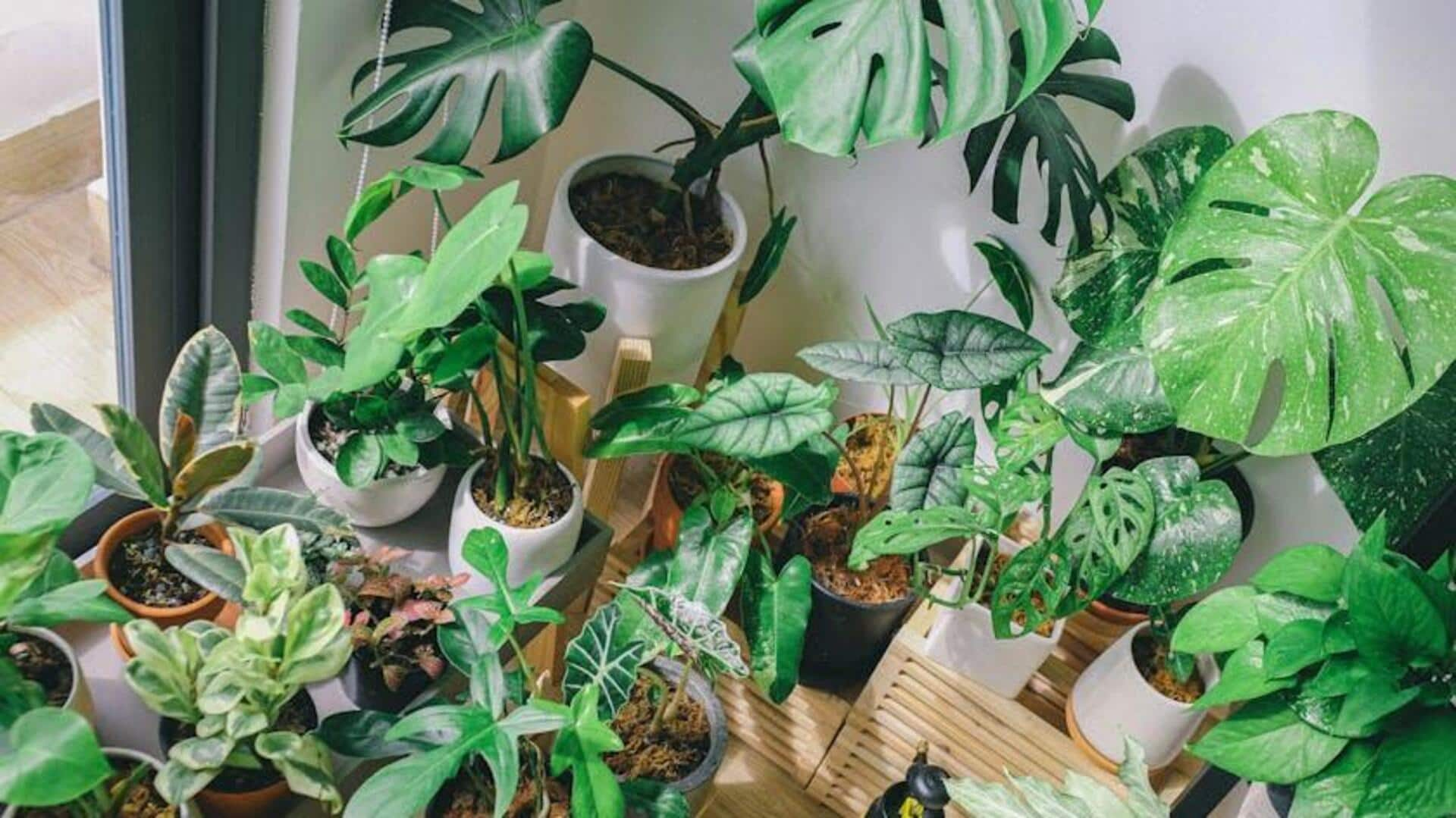
Plant parenting 101: Tips to prevent pests naturally
What's the story
Managing pests on houseplants can be a task, more so when you are looking for sustainable solutions. Most prefer natural methods to steer clear of chemicals and promote a healthier indoor environment. Here are some effective strategies for controlling pests naturally and keeping your plants vibrant and healthy without synthetic pesticides. These methods are eco-friendly and cost-effective, making them accessible for anyone maintaining an indoor garden sustainably.
Neem oil
Neem oil as a natural pesticide
Neem oil, derived from neem tree seeds, acts as a natural pest repellent. It prevents insect life cycles, stopping them from feeding and reproducing. Combine one teaspoon of neem oil with a liter of water and a few drops of dish soap. Spray this on your plants every week to keep the pests at bay. It's safe on most houseplants and low-risk for humans and pets.
Beneficial insects
Beneficial insects as allies
Introducing beneficial insects like ladybugs or lacewings can help you control pest populations naturally. These insects prey on common plant pests like aphids and spider mites, reducing their numbers without harming your plants. You can buy these beneficial insects from online or garden center. Release them onto your plants in small quantities to give them time to establish themselves in your indoor garden.
Soap sprays
Homemade soap sprays for pest control
Homemade soap sprays are an easy way to manage soft-bodied insects such as aphids and whiteflies. Combine two teaspoons of mild liquid soap with one liter of water in a spray bottle. Spray this directly onto infested areas every few days until you notice a reduction in pest activity. The soap works by breaking the protective outer layer of the insect's body, causing dehydration.
Companion planting
Companion planting techniques indoors
Companion planting means growing certain plants together which naturally repel pests or attract beneficial insects indoors. For instance, keeping basil near tomato plants can repel whiteflies, while attracting pollinators (like bees) indoors—if you have flowering houseplants nearby, too! Experiment with different combinations depending upon what works best within your space constraints indoors, since some companions may need more light than others, depending upon where they're placed relative towards windowsills, etcetera.